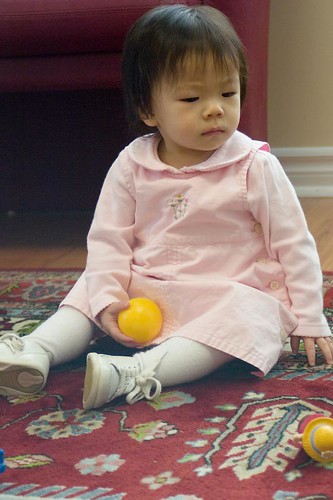Soulcraft: A Review
sorry, I'm preaching tomorrow. You'll have to make do with this book review I wrote in 2004. Warning - it's kinda long.
----------------------------
Soul food. Soul music. Soul mates, even. But ‘Soulcraft’? Surely this is God’s domain. Douglas Webster’s book of the same name inspires us, implores us that soulcraft is how God shapes us through our relationships. Webster presents a Christian world-view that blows apart any cultural or societal preconceptions about living and replaces them with Christ-centred God-perspective life.
A number of issues that Webster raises are striking and absolutely necessary. At the heart of understanding soulcraft is understanding the soul itself. Webster begins with Jesus’ assessment of the soul’s worth:
"… the value of our soul is beyond our means. It always has been and always will be. Who we are and to whom we belong is a critical issue, especially when it comes to relationships… our self-understanding shapes our expectations of self-fulfillment." (43)
If we do not have a clear understanding that we indeed have a soul, and that it is the most valuable thing about us, then we will inevitably degenerate into a self-absorption that serves to “reduce the human being from a person to a product.” (45) We will end up soul-less, left to find meaning in whatever we can apart from God. Webster suggests that our societal preoccupation with image comes from this absence of soul, because there is nothing but the self to believe in. As each generation is raised with this mindset, we are becoming more and more materialistic, self-indulgent and self-absorbed. Even the renewed interest in spirituality and religion that is occurring seems to be subsumed under a ‘what’s in it for me’ attitude. In this kind of spirituality, “realities of sorrow, pain, aging, disease and death are glossed over. Coping with stress, realizing one’s dreams and finding happiness are the modern equivalent to salvation. In our soulless culture spirituality is not God-centered but me-centered.” (48-9)
The true self is the one who is found in God. Webster’s key point here is that self-understanding is found in being fully known by God. When you are known, you are real. In the movie “The Firm”, Tom Cruise’s character discovers that the new law firm he has joined is in fact a front for the mafia, and tells his wife the terrible news that they are trapped in this situation. He admits that he has known for a while, but didn’t want to tell her because “If I tell you, then that would make it real.” Inasmuch as sharing truth with another makes it reality, sharing oneself with God in surrender makes us real. Webster parallels the relationship between parent and child and between God and person:
"I know what it means to call my daughter mine, not in a possessive, domineering sense but in a way that I pray secures her identity, strengthens her confidence and frees her to become a mature adult – a God-centered woman. How much more effective is God’s parental love because his love is untainted by selfish motives, foolish fears and ignorance." (52)
In our belonging to God, our identity is secured, our confidence is strengthened and we are free to become ourselves.
The value of self-knowledge grounded in God is immediately apparent when discussing the issue of marriage. Webster does not offer us any techniques to ‘work on’ our marriages, but rather calls us to centre our marriages in Christ, understanding that it is a shared work, a spiritual discipline that declares Jesus as Lord. The difference in understandings of marriage makes this distinction apparent. In today’s culture, marriage often seen as a big experiment, destined for success or failure, whose measure is the relationship. If the relationship is good, then the marriage is succeeding. If the relationship sours, then the marriage is failing. Another popular feeling about marriage is that it is a project, “instead of enjoying marriage as a living, organic experience of growth and maturity, they make it into an operation to be managed efficiently and productively so that they can realize the greatest amount of personal profit.” (149) Webster points to the extravagance and concern surrounding the wedding ceremony and the wedding day, and the little concern for the lifelong work of the marriage. Where the wedding is the chief concern of the couple, the marriage is the chief concern for God, the wedding being but the start of this commitment. If we likened it to the process of our conversion, it would be as if we planned out how we were going to accept Christ, where and when, whether it was to be a quick turnaround or a lengthy investigative process, whether in public with friends or in private, and so forth, without any thought as to how we would live our lives afterwards and what work the commitment would entail. While the first part usually is not the case in that we don’t often plan our conversions, we do often fail to ‘count the cost’, and live our lives unawares, as if nothing had changed other than our final state after death. So likewise in marriage, we enter into a lifelong commitment requiring change, self-sacrifice and real work.
Webster calls us to integrate the cross into our marriage in several ways. The first is the understanding that our love for God and our love for our spouse are distinct but not exclusive. They strengthen and enrich each other, and the second cannot exist without the first. Webster writes, “Devotion to God can stand alone, but devotion to the beloved cannot.... The best way to keep alive the vitality of first love between a husband and wife is to have an abiding relationship with God.” (151)
Another way the cross is to be central to the life of marriage is in the range and depth of commitment to our exclusive and permanent relationship. This commitment cannot come without humility and submission to one another out of reverence for Christ (Eph. 5:21). This understanding turns our popular concept of marriage on its head: “Marital love depends not on romantic feelings or pious feelings but on covenant and commitment. Fidelity does not depend upon feelings, but feelings depend upon fidelity. Romance does not create love; it is love that creates romance.” (161) Webster is clear to differentiate between true humility and what passes for humility these days, which is often humiliation instead. True humility “has nothing to do with subservience or passivity, but rather with obedience and faithfulness.” (161) The depth of our commitment extends to great sacrificial love, and husbands in particular are called to even lay down their lives for their wives, just as Christ sacrificed His life for the church. Another arena where self-sacrifice is required is in the raising of children, and Webster’s chapter addresses some of the issues facing parents today.
Inundated with parenting magazines and books on everything from behaviour to nutrition to sleeping strategies, the modern parent has no end of resources for guidelines and techniques for parenting. Webster, however, does not offer us a method or techniques for improving our parenting, but rather a guideline for living that will make us into true parents. The key realization, Webster writes, is that “’A parent’s main job is not to be a parent, but to be a person.’ The moment we understand this we realize that everything the Bible says about being a man or woman of God applies to being a parent.” (166) The world gives us how-to manuals, but Webster proposes a how-be approach, grounded in our relationship with Christ. Soulcraft would demand that God be a part of every relationship that we have, and what more important relationship than the one between parent and child? Quoting Edith Schaeffer, “The family is the place where loyalty, dependability, trustworthiness, compassion, sensitivity to others, thoughtfulness, and unselfishness are supposed to have their roots. Someone must take the initiative and use imagination to intentionally teach these things.” (178) When so much good can be accomplished through family relationships, is it any wonder that everyone, not just Christians, finds themselves under attack in this area? The disruption of the family and its potential for life-long, deep relationships is certainly not by accident. Webster suggests Abraham and Sarah as parents who by their actions reveal three principles of parenting soulcraft. Firstly, the family ought to be a place of refuge for children from the attitudes and cultural pressures of the world. Commenting on the vulnerability of girls to feel trapped by a shallow and appearance based value system, Webster says that “we can only conclude that our parenting has been too superficial and cosmetic. We have not gone deep enough with our children to present them with an identity in Christ that helps them resist conformity to the world’s dehumanizing, accountability resistant strategies.” (172)
The establishment of true identity in our children, encouraged by our relationship with them and our modeling of lives in Christ, will be a supreme achievement of today’s parents. Who they are will be defined by their identity in Christ, not what the world tells them.
Secondly, the principle of sacrifice is demonstrated by Abraham’s willingness to literally sacrifice his son Isaac. This principle reminds us that while we like to call them ‘our’ children, they really are gifts from God and belong to God. Furthermore, this attitude of heart prevents us from turning our children into idols, whom we value more than anything else, even God Himself. It is easy to see how this can happen; even on the purely human level, many parents adore their children to the exclusion of their marriage relationship, and find themselves suffering ‘empty-nest syndrome’, living with a stranger for a spouse when their grown children leave the home.
The third principle is that of a “legacy of love” (176) which seeks to look forward to a child’s future and prepares them for it, in prayer and encouragement. Webster cites Abraham’s approach to finding a wife for Isaac, of which there were two requirements: that she be from Abraham’s people; and that the servant must not take Isaac with him, and by so doing, leave the promised land. In faithfulness, Abraham sought a wife for Isaac. So too, we should pray and “encourage them to seek husbands and wives who are committed to Christ. In meaningful and loving ways parents and children can overcome generational segregation and individual autonomy. Home should be a place where all generations gather together to strengthen each other in their identity in Christ.” (176)
Another principle that Webster speaks about is ‘table fellowship’. More than just dinnertime, this is where the family meets for “discussion, debate, humour, prayer, and sharing of God’s Word. We probably do more arguing and more affirming around the kitchen table than we do anywhere else.... most of the time, the food is secondary to the fellowship and listening is far more important than eating. And sometimes the best part of the meal is when the food is finished and we stay at the table talking.” (179-80) This also is a counter-cultural action in today’s world, a rarity in our busy lives, where we are more prone to watch TV while eating than fellowship together.
To summarize, Webster asks that we as parents seek to love God wholeheartedly, a life long direction that leads to the following results:
1. The understanding and application of the Word of God to all of life.
2. The recognition of the ongoing changing relationship with our children that reflects the journey towards heaven in Jesus Christ.
3. The finding of our identity in Christ, not our jobs, not our performance, and not in our kids.
4. The humility that is willing to say “we don’t have all the answers. We are not the Lord.... Parents are not sovereign, God is.” (182)
5. The acceptance of responsibility for our children’s “safety, protection, guidance, discipline and provision… and to love them wholeheartedly and show them Christ.” (183)
Webster’s next to last chapter of the book deals with the issue of divorce, and it is placed there by design. Having already explored our position in Christ, sexuality, marriage, singleness, and parenting, it is Webster’s hope that we are now prepared to discuss and prevent divorce. Jesus’ stance on divorce is made clear in the Sermon on the Mount (Mt. 5:31-32) and in his response to the Pharisees’ question concerning the legality of divorce (Mt. 19:3-12): “Other than violation of the one-flesh marriage relationship, Jesus insists that there are no grounds for divorce. As far is he is concerned the bottom line remains as it was from the beginning, “Therefore what God has joined together, let no one separate” (Mk 10:9 NRSV).” (188) Divorce for any other reason results in both parties becoming adulterers. Webster notes that immediately following this account in Matthew and Mark, there is an account of the people bringing their children to Jesus for His blessing. The response of the disciples to them highlights their reluctance to accept Jesus’ teaching on divorce. If there are no grounds for divorce, then they argue that it is better not to marry at all. Webster argues that this male-centreed attitude towards marriage (divorce is permissible on practically any grounds you want) is carried over to their reaction against the parents, most likely to be mothers, who brought their children to Jesus.
Webster writes, “… their bias toward the husband’s advantage in divorce and their slanted, male-conditioned indifference toward children influenced their reaction. Mark tells us that Jesus was indignant…” (189) Jesus warns against those who would hinder children from Him, and Webster suggests it is more than coming to Him that Jesus is talking about. No doubt recognizing the damage and pain that subjecting a child to divorce causes, Jesus sides with the children. In fact, Webster argues, a child’s view on divorce is the same as Jesus’ view:
"It is not surprising to find that Jesus and children share the same expectations when it comes to marriage and family. Children expect a family to remain intact; they expect family members to be committed to each other in enduring, loving relationship. Children expect their parents to sacrifice for them, even as Jesus calls parents to a life of self-denial. The principle of the cross is planted squarely at the heart of Jesus’ theology of marriage, and it should be in ours as well." (190)
Jesus allows one exception for divorce in his response to the Pharisees, adultery. To Webster, the most effective way to combat the temptation of unfaithfulness is, almost ironically, faithfulness: “Marital partners are aware of the dangers that threaten their relationship and they work to protect one another from the seduction of the soul.” (198) Partners are responsible for each other, making sure that life is shared completely and openly, with no hidden areas. Quoting Walter Wangerin, Webster writes that couples should pay attention to their feelings:
"“[Partners] sound the bell at the ‘maybe’ moments. Moderate jealousy is an alarm bell to be heeded—and only those who are self-centered in their love think all jealousy purely suspicious and evil.” Marriage partners who practice soulcraft have a fearful respect for the power of evil and cultivate a responsive moral sensitivity." (198)
This responsibility to each other comes naturally to a marriage in which soulcraft is practiced. If partners are committed to one another with the principle of the cross at the heart of their marriage, these kinds of things come naturally, and that is what Webster’s hope would be.
Jesus reinforces the strong idea of marriage in the face of divorce, and perhaps there is no better way to counter something wrong than by holding up the ideal. Webster argues that this is exactly what soulcraft is about. Knowing what the ideal is and holding our self and our relationships to this ideal is the work of every Christian.









